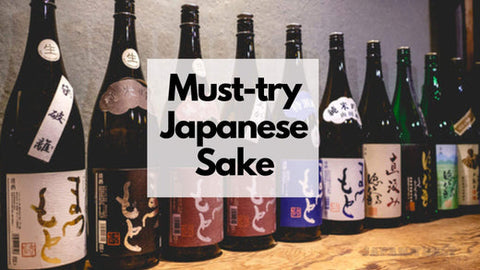We picked the best Japanese furniture brands so you don’t have to! Check it out!
Japan has long been at the forefront of infusing function with elegance, a tradition evident in its furniture craftsmanship.
When considering a revamp or introducing a fresh aesthetic to your space, exploring Japanese furniture brands offers an opportunity to imbue your surroundings with a minimalist, yet functional appeal.
Which is the best Japanese furniture brand?
Karimoku stands out for its blend of tradition and modernity. They use high-quality craftsmanship alongside modern technology to create beautiful, minimalist wooden furniture that highlights natural beauty and lasts for generations.
Best Japanese Furniture Brands
Karimoku
Time-Honored Craftsmanship and Modern Appeal
Rich in heritage, Karimoku emerged from a humble woodworking shop to transform into a brand synonymous with quality wooden furniture. It excels in sustainable practices by judiciously selecting materials that ensure minimal environmental impact.

Achieving longevity and beauty, Karimoku demonstrates a robust commitment to eco-friendly processes and seamlessly bridges tradition with modern furniture solutions.
Ariake
Unity in Diversity.
In the town of Morodomi, Ariake has redefined furniture making with a philosophy that transcends geographical and cultural barriers. Their approach is grounded in collaboration, where designers and artisans convene to craft pieces that resonate well with communal settings.

The brand epitomizes the Japanese ethos of harmony, creating dawn-like fresh designs that honor the intimacy of shared spaces.
Conde House
In Harmony with Nature
Hokkaido's pride, Conde House, blends cutting-edge innovation with time-honored craftsmanship. Their furniture solutions are not only visually pleasing but also stand the test of time.

The brand stands apart with its diligent local sourcing, utilizing the abundance of natural material and skilled artisans to create an array of furnishing that adds character to homes, offices and public spaces, exuding the essence of Japanese aesthetics.
Hida Sangyo
Innovations in Wood
From the wood-rich landscapes of Hida-Takayama, Hida Sangyo leverages age-old woodworking techniques alongside innovative methods.

The result is a transformative use of soft cedar, enabling the creation of durable and sensory appealing furniture pieces while revitalizing overlooked domestic woods.
Muji
Simplistic No-Brand Quality
Muji breaks from the conventional by adopting a no-brand philosophy that echoes in their minimalist design and rational manufacturing process.

From stationary to appliances, Muji extends this policy across its product range, culminating in a distinct brand identity that champions material conservation, sustainability, and a straightforward customer experience.
Nitori
Furniture for Every Setting
With an impressive number of outlets both within Japan and internationally, Nitori sets the bar high for accessible, quality furniture.

This household name meets the fluctuating demands of day-to-day life, providing everything from seasonal decorations to full household setups. Their approach simplifies in-store and online purchases, catering to a seamless shopping experience.
Kashiwa
Artistic Efficiency
Boasting the implementation of the Toyota Production System in furniture crafting, Kashiwa meets consumer expectations with precision.
Their prowess enables the reliable delivery of vast monthly outputs, including interior doors. The company has won acclaim by employing creative and efficient production and delivery systems.
Maruni Wood Industry
Pioneering New Techniques
Post-war, Maruni Wood Industry ushered in a renaissance of furniture making by adopting advanced European wood drying techniques.

The relentless pursuit of excellence has seen Maruni innovate at every production phase, allowing them to continually elevate their masterful creations to the pinnacle of Japanese design and functionality.
The essence of Japanese furniture design — characterized by minimalism, elegant lines, natural materials, and an inherent sense of balance — resonates deeply with a global audience.
Whether it is the calm presence of a tatami mat, the subtle functionality of low tables, or the artistic use of natural wood and paper cord, these furnishings exude a purposeful serenity that complements any setting.
In a world where living spaces reflect our personal narratives, consider incorporating the timeless grace of Japanese furniture — it’s a conscious step towards creating a serene and inspired home.
Which Japanese Furniture Brands Lead in Quality and Style?
When looking for furniture that embodies both top-notch quality and exceptional design, several Japanese furniture brands stand out. Explore top picks like Ariake, known for its artisanal approach and collaboration with international designers, blending Japanese traditions with urban design. Other prominent brands include Tendo, recognized for its expertise in molded plywood furniture.
Notable Contemporary Japanese Furniture Designers
Today, the furniture design scene in Japan is shaped by a roster of skilled designers. Their influence on modern Japanese aesthetics and craftsmanship continues to impress the global design community. To keep an eye on the movers and shakers in the industry, stay abreast with updates from leading designers and their innovative creations.
Top Online Destinations for Authentic Japanese Furniture
For those seeking authentic Japanese furniture pieces from the comfort of their homes, several online platforms provide a broad range. Whether you're in the market for traditional designs or modern interpretations of classic styles, online retailers provide a gateway to Japanese aesthetics right to your doorstep.
Japanese Craftsmanship Compared to Western Standards
Japanese furniture craftsmanship is often distinguished by its meticulous attention to detail and use of sustainably sourced materials. Comparatively, Western furniture may emphasize different design philosophies, but both hold a high standard of quality, reflecting regional artistic values and techniques.
Japanese Alternatives to Global Furniture Retailers
If you're looking for alternatives to mass-market furniture retailers like Ikea, Japanese furniture offers unique and often more handcrafted options. From furniture with a minimalist aesthetic to pieces highlighting traditional Japanese elements, these alternatives provide an opportunity to incorporate a different design ethos into your living space.




